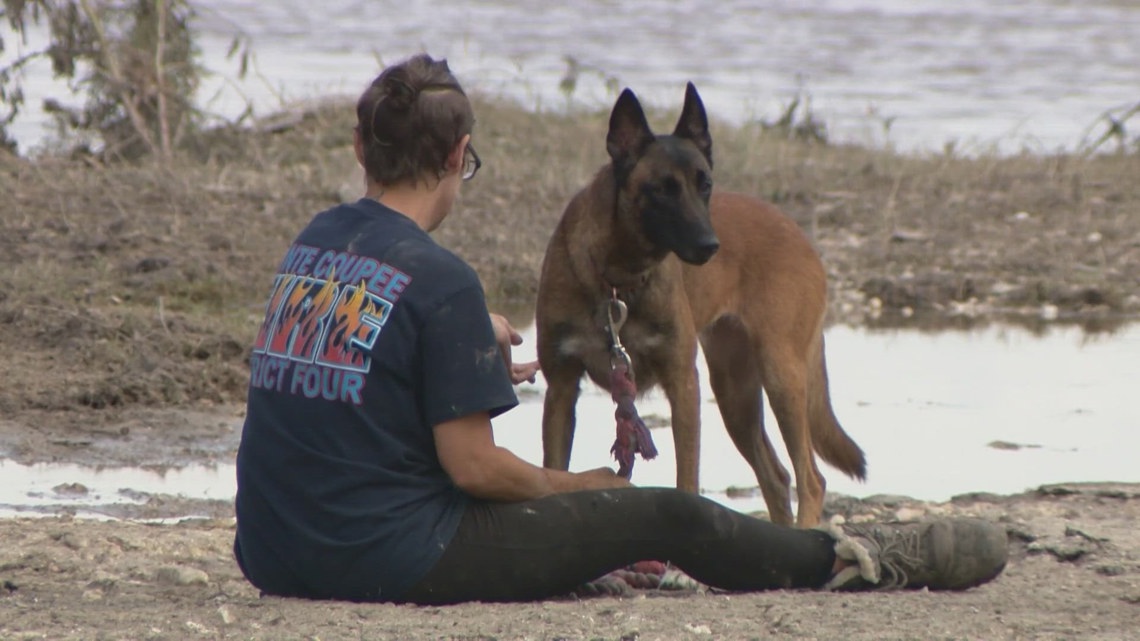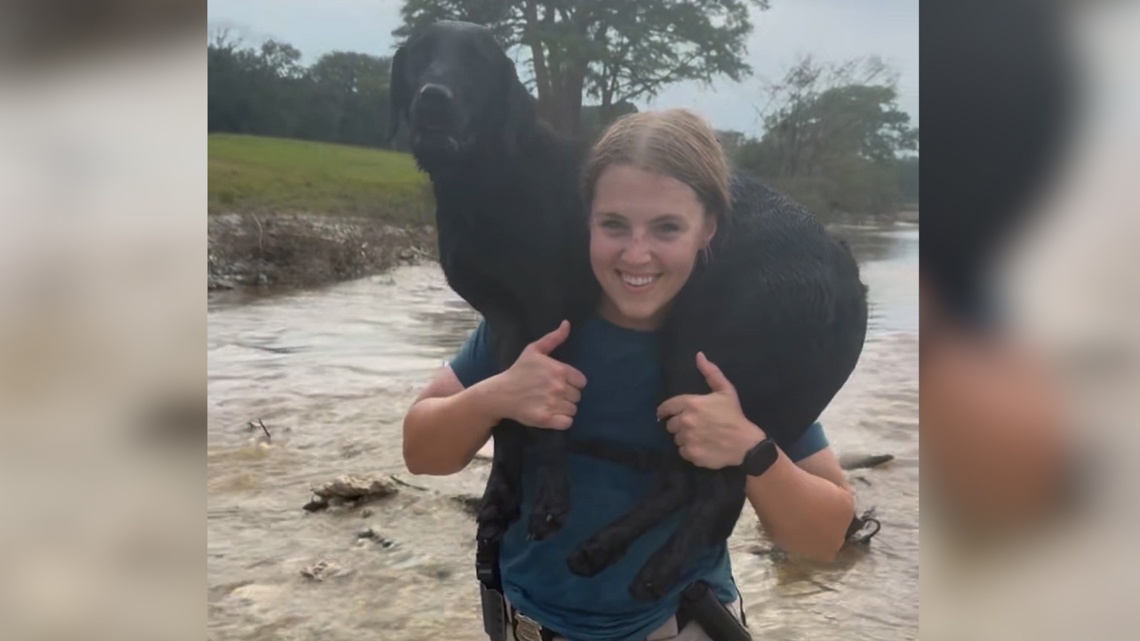Cadaver dogs play a vital role in searching for Kerr County flood victims, offering capabilities beyond traditional equipment to locate missing people.
KERR COUNTY, Texas — Cadaver dogs are playing a critical role in the search and recover efforts in Kerr County.
Search and rescue teams are covering a large search area, and boots on the ground says there is a need for more of these dogs.
We spoke with Texas Eqqsearch and the Forensic Anthropology Center at Texas State, who gave us some insight into the role cadaver dogs are playing in search operations.
“The cadaver dogs are very invaluable when you’re doing searches,” said Dr. Michael Ben Alexander.
Dr. Alexander is a canine training coordinator at the Forensic Anthropology Center at Texas State University.
He says when the searches for the missing began, he was contacted by local officials.
“We were able to help find teams to come in,” said Dr. Alexander.
Teams from Tennessee, Louisiana and Kansas have been called in to aid in search efforts. Dr. Alexander says these teams were trained at Texas State.
“The biggest thing that we provide is the opportunity for handlers to work their dogs, on whole bodies, fresh bodies, decomposed bodies, mummified bodies, bodies basically in various stages of decomposition,” said Dr. Alexander.


Brenda Peek, Caine Handler with Texas Eqqusearch, is currently assisting in search and recover efforts in Kerr County. Peek says cadaver dogs are key in their searches.
“We use drones, we use boats, and sonar equipment. Cadavers, they just can maneuver in and under and through, and get on top of things that that some equipment can’t get to,” said Peek.
When dogs pick up on a scent, experts say they will have a reaction or change of behavior.
“There’s a bark alert, that’s where the dog is in human remains, and will alert you by barking at the human remains,” Peek said. “There’s a sit alert. My particular dog is a bark alert. There’s sitting, there’s lying down, and there’s a stare.”
Peek says with the amount of missing people that have been announced, she anticipates search operations taking weeks or even months.


“It’s most important, why we do this, which is to find closure to families, and find their lost one, lost loved ones,” said Peek.
Texas State officials wanted us to clarify that they don’t deploy cadaver dogs to searches, they simply train them. They also say if you have a dog who is trained, and want to help, you should contact the local sheriff’s office.
